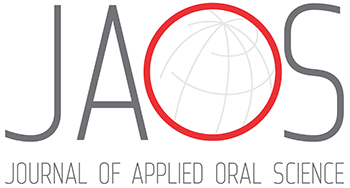Abstract
Objective
The purpose of this study is to investigate the pathogenic role of PPARα in periodontal antigen treated gingival cells in vitro and in experimental periodontitis in vivo .
Methodology
Gingival fibroblasts, gingival epithelial cells and splenocytes were isolated from C57BL/6J wild type (WT) mice and treated with fixed P. gingivalis at for 48 hours. The mRNA levels of PPARs, TNFα, IL-1β and IL-10 were detected by Real-time quantitative PCR. Silk ligatures after being soaked in the P.gingivalis suspension were tied around both maxillary second molars of WT mice or PPARα knock-out (KO) mice for two weeks. PPARα agonist fenofibrate and vehicle control were injected into the different side of the palatal gingiva on days 3, 6, and 9. At day 14, bone resorption and gingival mRNA expression levels of PPARs, TNFα, IL-1β and IL-10 were measured by micro-computed tomography and RT-qPCR respectively.
Results
P. gingivalis treatment downregulated the expression of PPARα, but not PPARβ or PPARγ, and increased the expression of TNF-α and IL-1β in Gingival fibroblasts, gingival epithelial cells and splenocytes from WT mice. Gingival mRNA levels of PPARα were significantly decreased in experimental periodontitis in WT mice. The bone loss of PPARα KO mice in experimental periodontitis was significantly higher than WT mice and was not reduced by fenofibrate treatment. Gingival TNFα protein expressions were significantly increased by P. gingivalis associated ligation and decreased by fenofibrate treatment in WT mice but not in PPARα KO mice.
Conclusion
This study suggests that PPARα plays an essential role in periodontitis.
Periodontits; Peroxisome proliferator-activated receptor alpha; Porphyromonas gingivalis

 Thumbnail
Thumbnail
 Thumbnail
Thumbnail
 Thumbnail
Thumbnail
 Thumbnail
Thumbnail
 Thumbnail
Thumbnail




